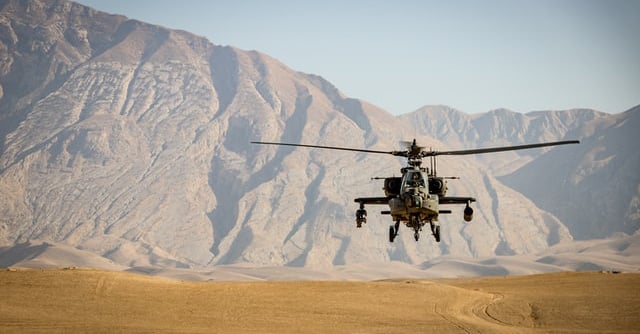Dr Alice Martini explores why the War on Terror has continued to play an important role in international politics, despite becoming less visible in the news media.
This post is by Dr Alice Martini, Online Tutor for Queen Mary’s International Relations MA. Her research interests include global discourses on security, (counter) terrorism and (counter) extremism.
2021 and the withdrawal of US and other countries’ troops from Afghanistan have renewed commentators’ interest for the War on Terror (WOT). This renewed interest is based on the idea that the War on Terror is again important to understand what is happening in Afghanistan.
However, scholars researching on the topic and students of security studies know that, rather than again, the War on Terror is still important.
The US and the launching of the WOT
The War on Terror and the intervention in Afghanistan started in 2001 as a response to 9/11. Nevertheless, while the military campaign in the country is key to understand the launching of the war, throughout the years, the WOT has become a global paradigm shaping the understanding of counter-terrorism and international security.
The WOT started as a US Foreign Policy. However, the hegemonic power of the US in those years and the various processes of reconfiguration of the international community rendered it into a global political priority.

The WOT: a US’ Foreign Policy becoming global
The WOT becomes global for many more reasons. First, the 1990s-2000s are the decades when conflicts changed. In these years, wars shifted from inter-state – i.e., among sovereign states – to intrastate conflicts – i.e., conflicts taking place within states where violence is carried out by non-state actors.
In this sense, the WOT reflected these changes and it was articulated against a global enemy taking the shape of an international network – i.e., Al-Qaida – and the Taliban supporting and harbouring it.
Secondly, the war is global because the US’ hegemonic position allowed the articulation of a wide coalition of states. It is in this moment that President Bush divided the world into the "you are either with us, or against us in the global war on terrorism".
This, however, did not only result in the articulation of a broad coalition but it also managed to render counter-terrorism into a global priority for the international community.
It is because of this reasons that in International Relations the War on Terror represents much more than the fight against Al-Qaida and the intervention in Afghanistan. From the very beginning, it implied the reshaping of the rules and ethics of war and a shift in military tactics – still continuing today.
The WOT and the securitization of international politics
Furthermore, making counter-terrorism a global priority brought institutional and legal changes too. Since 2001, there is virtually no state in the world or international organisation that has not adapted and updated its counter-terrorism legislation and its internal and external security systems.
Moreover, throughout the years, these processes led to a deep securitisation of many political and social spheres and issues. This did not only implied that the WOT placed international security at the top of international and domestic agendas. It meant that security became the main global framework used to understand political and social issues.
For example, international aid, development, and peacebuilding are nowadays linked to counter-terrorism efforts. Domestically, societies are monitored and extensive surveillance is implemented in the name of security.
The WOT is still important
Since 2001, security logics linked to the WOT have permeated the global agenda but also our everyday lives. For example, we experience security measures linked to counter-terrorism when we travel, when we use the internet and cyber-banking, when we attend big sport events, when we visit important museums.
We can even see how counter-terrorism changes the design of our cities – for example, through the positioning of roadblocks to protect crowded places.
This is why the War on Terror is much more than its military campaigns and why it is still important nowadays. Although the WOT may have been much less visible in the news media, it never really went away from international politics.
As part of Queen Mary Online’s International Relations MA, you will examine how global paradigms such as the War on Terror are practiced and interpreted. You can start this part-time, online course in May or September:
.png?width=280&height=74&name=logo%20(1).png)


 Follow us on Twitter
Follow us on Twitter Like us on Facebook
Like us on Facebook